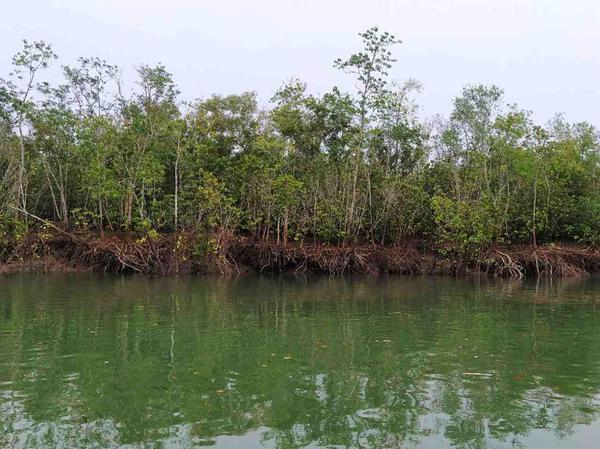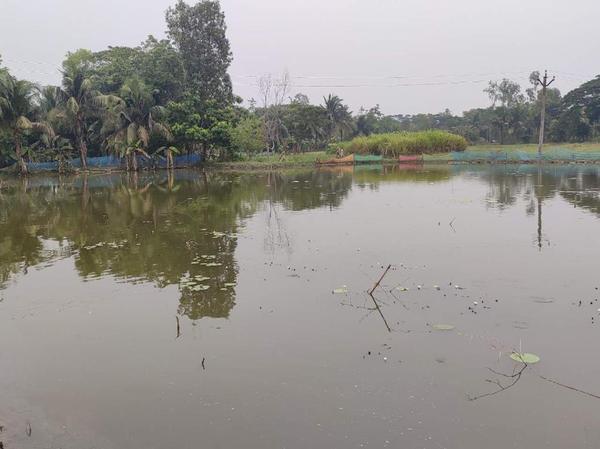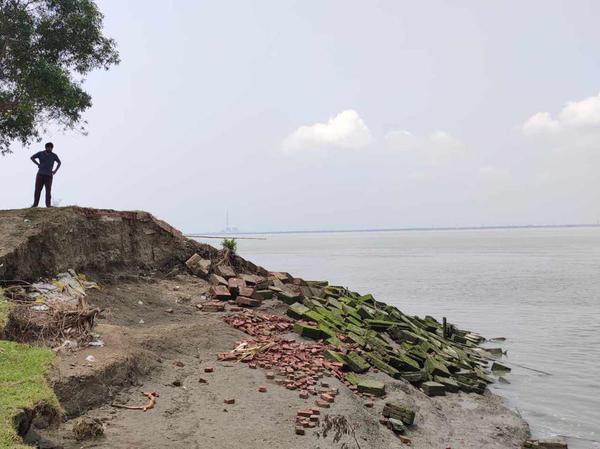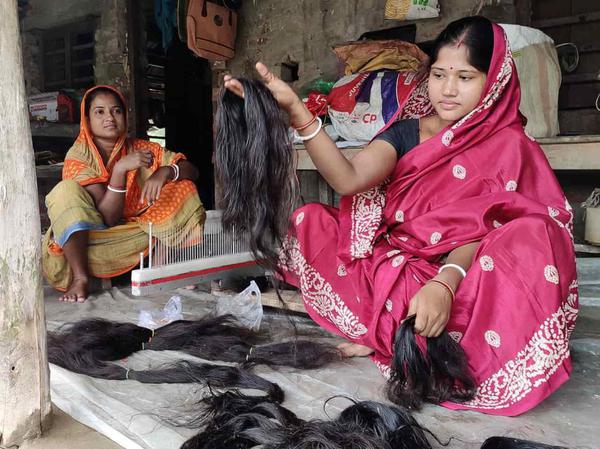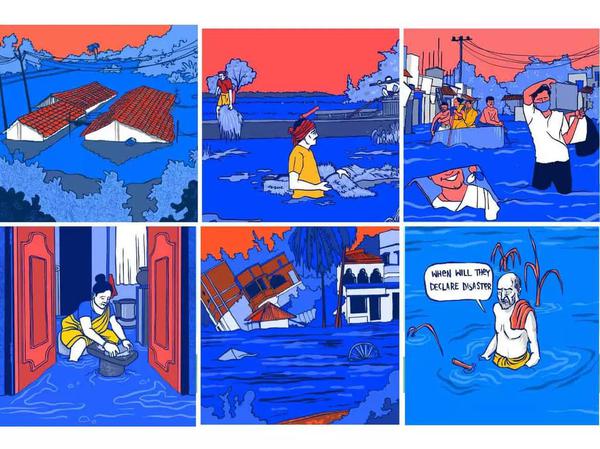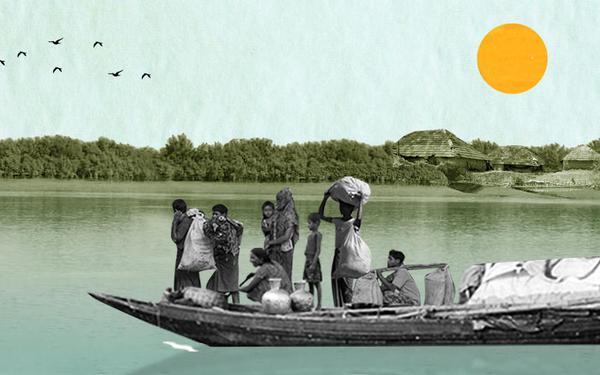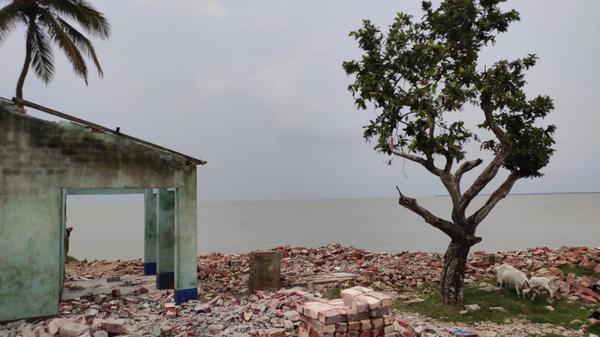
Ghoramara's final gasp: Are we going to let this island in Sundarbans die?
From a distance, the island of Ghoramara looked like a hurriedly eaten muffin — as if someone had taken bites from its shores. As I moved closer to this south Bengal island in the Hooghly estuary, my eyes lingered on the few coconut trees that had toppled over, and the shore seemed like it would collapse at any moment.
The ferry cut its engine and moved in a wide arc towards this uneven terrain to park. There is no jetty as that would be washed away as well. A wooden plank was propped up from t
